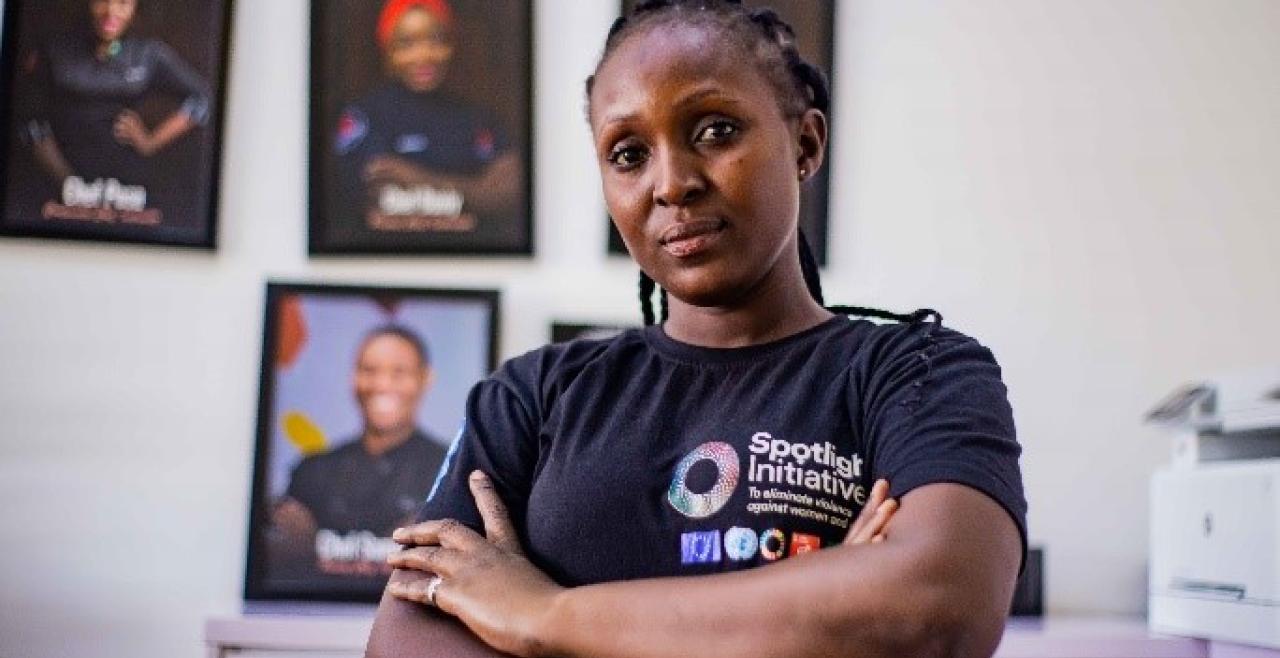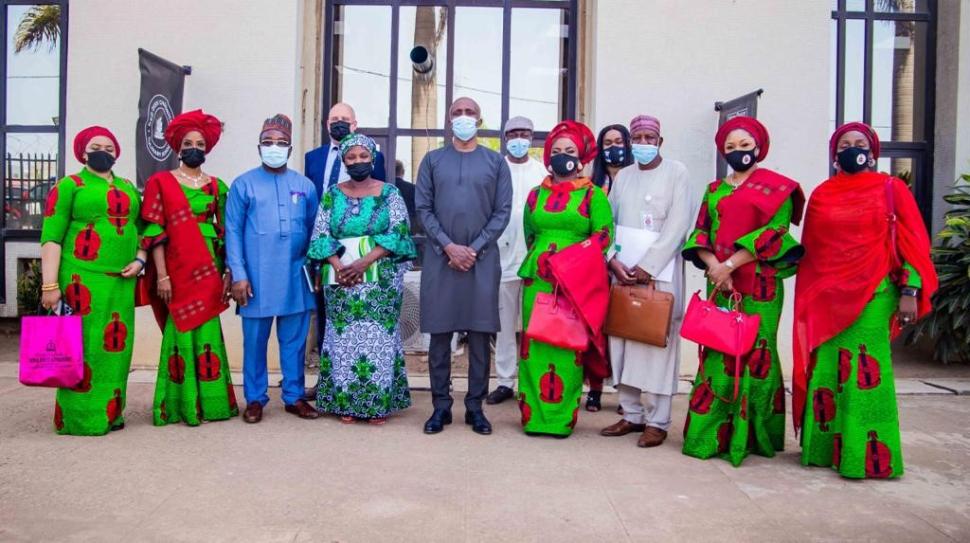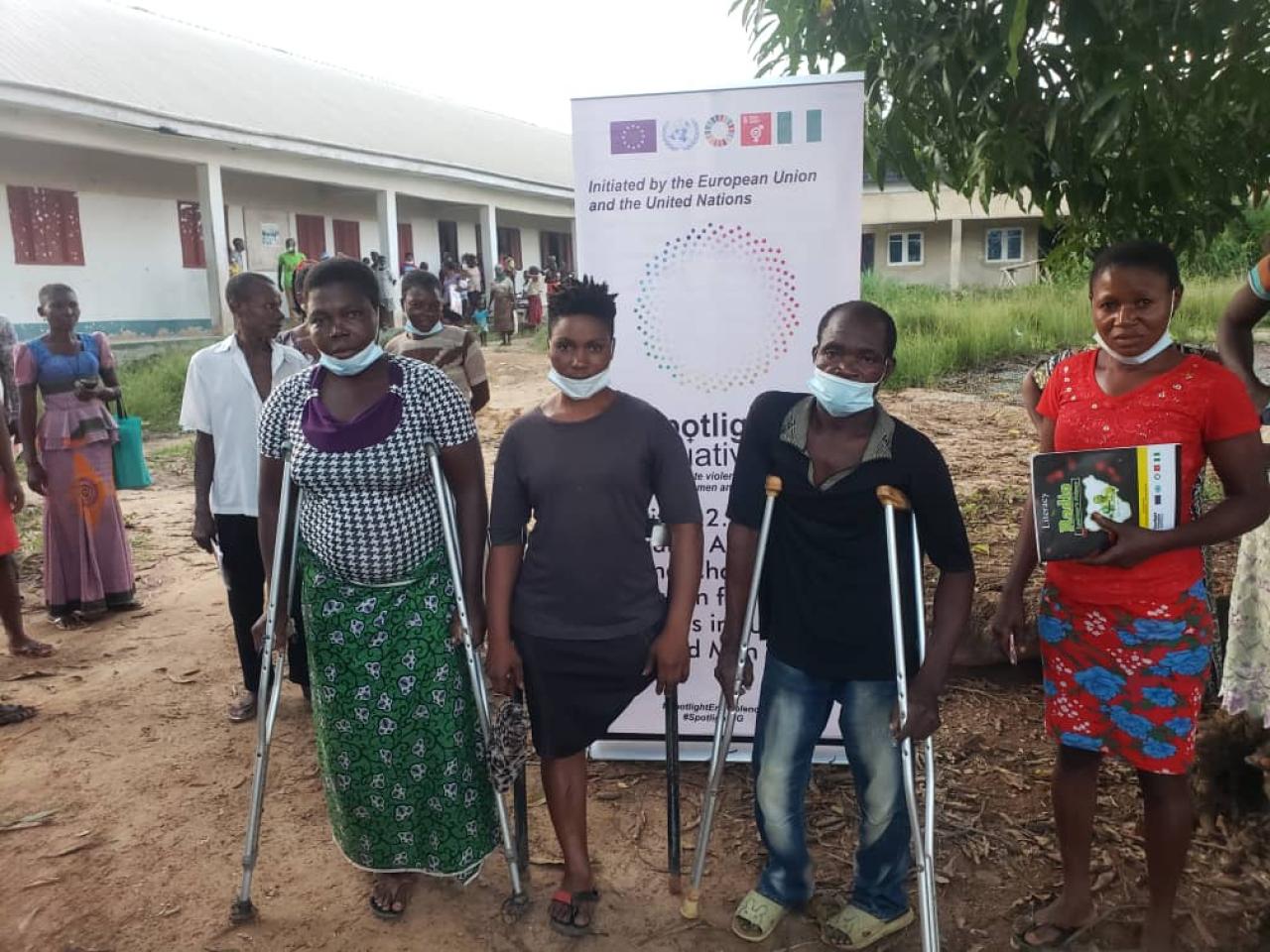Livelihood Pathway Programme provides hope for survivors of gender-based violence

ABUJA, Nigeria - Blessing Ojukwu, 30, became pregnant 10 years ago after she was raped. “My family threw me out of the house. I had nowhere to go so I lived in an uncompleted building and hawked sachet (packaged) water to survive,” said Ms. Ojukwu.
Out of options, she was forced to live with the man who raped her until her baby was born. “He physically abused me until I almost lost the pregnancy at eight months,” said Ms. Ojukwu. During this time, she was in and out of the hospital emergency room as a result of the constant violence.
"I had nowhere to go so I lived in an uncompleted building and hawked sachet (packaged) water to survive... This is my second chance” - Blessing Ojukwu, culinary arts graduate
It was while seeking redress against her abuser at a Spotlight Initiative-supported centre in Abuja that Ms. Ojukwu heard about a culinary arts training opportunity that aims to give survivors of violence vocational training so that they can become financially independent. She enrolled and today she is a qualified chef with training in food photography and presentation who hopes to work as a pastry chef. “This is my second chance,” she said.
Ms. Ojukwu shared her story during a graduation ceremony for 20 women in Abuja from the Spotlight Initiative-supported Livelihood Pathway Programme in culinary arts. The ceremony was held to celebrate the completion of the women’s diploma degrees in culinary arts training from Reddish Chronicles Culinary School. It brought together representatives from government, the National Human Rights Commission, EU and UN to promote women's empowerment and freedom from all forms of violence in the country.
“Empowerment is a tool that helps women and girls overcome the trauma of violence inflicted on them,” said Executive Secretary of National Human Rights Commission (NHRC) Tony Ojukwu.
From early and forced marriages to physical, psychological and sexual assault, harmful practices are prevalent in Nigeria. Forty-three per cent of girls are married before the age of 18, according to a 2020 UN Nigeria report on gender-based violence during the COVID-19 pandemic. Ms. Ojukwu’s story is a reminder of why the economic empowerment of women is so crucial.
The Senior Special Assistant to the President on Sustainable Development Goals (SDGs) Princess Adejoke Orelope-Adefulire said that women’s empowerment must be a primary focus because of their critical role in nation-building.
“This livelihood pathway programme is an important step to improving the economic and living standards of gender-based violence survivors in Nigeria” - UNDP Nigeria Resident Representative, Mohammed Yaya
The UNDP Nigeria Resident Representative, Mohammed Yaya, wrapped up the event by reiterating the UN’s support for women and girls. “We are committed to giving women and girls a voice to promote their empowerment and freedom from all forms of violence,” he said. “This livelihood pathway programme is an important step to realizing this [goal] and to improving the economic and living standards of gender-based survivors in Nigeria”.
UNDP, through the Foundation for Resilient Empowerment (FRED), is providing a livelihood pathway programme to 87 women and girls across the county in culinary arts, fashion design, event planning and decoration, and makeup artistry with support from Spotlight Initiative.
By Idongesit Inyang and Judith Owoicho.


